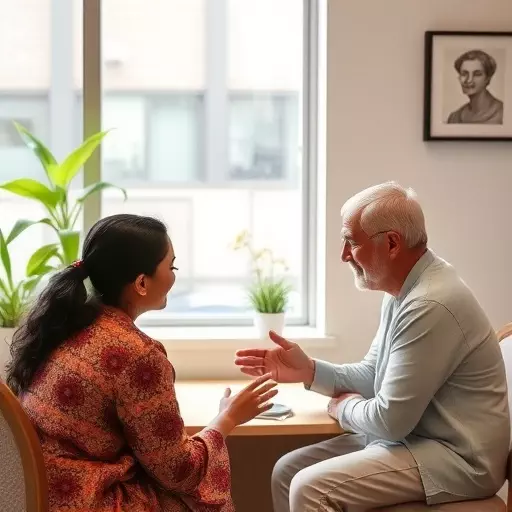In Warren-Troy-Farmington Hills, an emerging trend in healthcare focuses on integrative medicine, emphasizing self-care rituals as a holistic approach to well-being. Healthcare providers tailor solutions to individual patients, considering diverse cultural backgrounds and building strong rapport through understanding unique perspectives on health. Educational workshops, personalized consultations, and digital resources empower patients with practical tools like mindfulness, stress management, dietary changes, and nature-based routines for improved wellness across cultures.
Teaching patients about self-care rituals is a powerful approach gaining traction in healthcare, especially within the context of integrative medicine in Warren-Troy-Farmington Hills. This article explores how these rituals can improve overall well-being and offers a guide for practitioners. We delve into building cultural sensitivity by fostering rapport in multicultural settings, ensuring inclusive care. Additionally, we provide practical strategies and tools to educate patients effectively, empowering them to embrace self-care as an integral part of their wellness journey.
- Understanding Self-Care Rituals: Integrative Medicine Approach in Warren-Troy-Farmington Hills
- Building Cultural Sensitivity: Rapport in Multicultural Integrative Practices
- Practical Strategies: Educating Patients with Effective Tools in Integrative Care
Understanding Self-Care Rituals: Integrative Medicine Approach in Warren-Troy-Farmington Hills

In the heart of Warren-Troy-Farmington Hills, an integrative medicine approach to healthcare is gaining traction, emphasizing self-care rituals as a foundational aspect of well-being. This holistic strategy recognizes that physical, mental, and emotional health are intricately linked and often requires tailored, patient-centric solutions. By fostering a deep understanding of self-care rituals, healthcare providers in this region are uniquely positioned to bridge cultural gaps and build strong rapport with their diverse patient population.
The concept involves teaching patients practical tools and strategies they can incorporate into their daily lives, considering their unique backgrounds and preferences. This could range from mindfulness practices, stress management techniques, dietary changes, or incorporating nature into routines. For instance, in a multicultural integrative practice, understanding each patient’s cultural context is vital; some may find solace in traditional healing rituals, while others might prefer modern mind-body techniques. Through educational workshops, personalized consultations, and accessible digital resources, healthcare professionals can empower patients to take charge of their health, fostering a sense of agency and improved overall wellness.
Building Cultural Sensitivity: Rapport in Multicultural Integrative Practices

In the realm of integrative medicine in Warren-Troy-Farmington Hills, building cultural sensitivity is a cornerstone of successful multicultural integrative practices. Effective communication and rapport are crucial for providing holistic care that respects and incorporates diverse patient perspectives. Health professionals must be adept at understanding and adapting to cultural differences, ensuring every patient feels heard and validated. This involves learning about various cultural beliefs, traditions, and practices related to health and wellness. By creating a safe, inclusive environment, practitioners can establish trust and encourage patients to engage in self-care rituals tailored to their unique backgrounds.
Practical tools for patient education in integrative care include using visual aids, offering multilingual resources, and incorporating culturally relevant examples. These strategies facilitate better comprehension and foster deeper connections between caregivers and patients from diverse communities. Building rapport goes beyond words; it involves active listening, empathy, and a genuine interest in understanding each patient’s individual journey. Such an approach not only enhances the quality of care but also empowers patients to take an active role in their holistic healing process.
Practical Strategies: Educating Patients with Effective Tools in Integrative Care

In the realm of integrative medicine in Warren-Troy-Farmington Hills, building rapport with patients from diverse multicultural backgrounds is a game-changer. This strategy forms a strong foundation for teaching self-care rituals, ensuring that each patient receives personalized guidance relevant to their unique needs and beliefs. Through open communication, healthcare providers can uncover hidden barriers and tailor practical tools for patient education in integrative care.
Effective tools such as mindful breathing exercises, guided visualizations, and gentle yoga poses offer immediate, accessible means for patients to engage in self-care at home. Demonstrating these techniques during sessions allows patients to experience their benefits firsthand, fostering a deeper understanding of the power of ritualistic practices. Additionally, providing written resources, apps, or online videos can serve as lasting reminders, encouraging patients to incorporate self-care into their daily routines long after the initial education session concludes.
